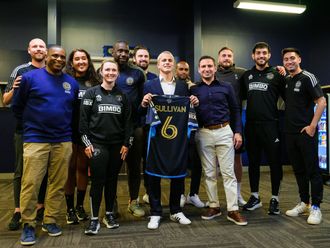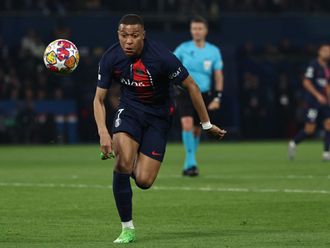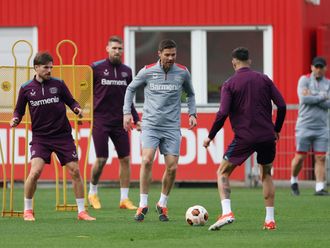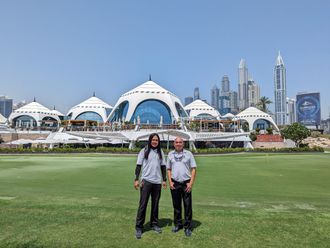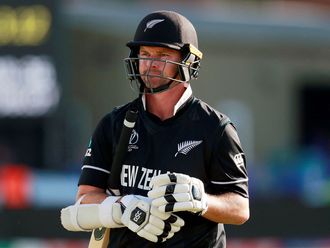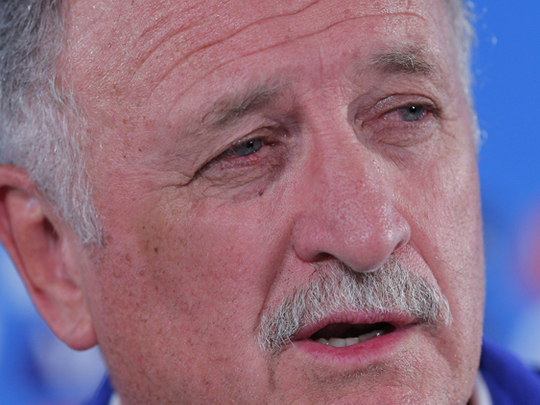
Brasilia: Brazil captain Thiago Silva on Friday spoke out in defence of coach Luiz Felipe Scolari, who has come in for a barrage of criticism in the wake of the World Cup hosts’ embarrassing semi-final defeat to Germany.
“The defeat was not Felipao’s fault. We are a group, and although I was not on the field I am part of that group,” said Silva, who missed Tuesday’s record 7-1 defeat in Belo Horizonte due to suspension.
The Paris Saint-Germain centre-back, who was set to return to the side in Saturday’s third-place play-off against the Netherlands in Brasilia, watched on as Brazil found themselves 5-0 down inside half an hour in the semi-final after conceding four goals in just six minutes.
“Unfortunately that is what happened. It was six minutes of panic,” he said, before admitting his regret at not being able to take part in Sunday’s final at the Maracana Stadium in Rio de Janeiro.
“Of course it’s frustrating. We all wanted to win a sixth World Cup but it was not possible. Felipao and his staff had confidence in the whole squad.
“It is frustrating because I had a lot of sleepless nights thinking about this World Cup and possibly getting to the final.”
Brazil, who were famously defeated by Uruguay at the Maracana in the deciding game of the 1950 tournament, have not played a single game at the legendary venue in Rio de Janeiro this time.
Injured star Neymar Jralso criticised his agent Wagner Ribeiro for a verbal attack on coach Luiz Felipe Scolari after the host nation’s humiliating 1-7 loss to Germany in the World Cup semi-finals.
Neymar said that Ribeiro’s outburst represents his views only and he does not agree with what his manager said, reports Efe.
Ribeiro had attacked Scolari through Twitter, describing him as an “old jerk, arrogant, repulsive, conceited and ridiculous”.
Neymar added that sacking coaches is not always the right decision to solve problems.
Meanwhile, Brazil has proved its doubters wrong by putting on a highly successful World Cup, President Dilma Rousseff said on the eve of the tournament’s final between Germany and Argentina this weekend.
Concerns that stadiums and airports wouldn’t be ready or that protests would disrupt soccer’s premiere event dogged Brazil in the years leading up to the event. But now, with the Cup almost over, people are hailing it as a sporting success and hundreds of thousands of fans have applauded the warmth of Brazilians and the lively party atmosphere.
“We showed that our people know how to have good interaction not only among ourselves but with the foreigners that we received,” she said Friday night at the presidential residence during a meeting with foreign journalists. “We competently maintained peace and order, as well as having good airport administration among other successes.”
The building of stadiums and virtually everything else related to the Cup ran far behind schedule and many planned public infrastructure works tied to the event were scrapped or never completed. Many feared that Brazil’s crowded airports would be overwhelmed as fans moved around the continent-sized nation to attend matches in 12 host cities.
However, transportation has been far better than forecast, which industry groups have said is partly because the number of air passengers during the month of the World Cup was significantly lower than normal. With Brazil essentially on holiday for the games, there were far fewer business travellers and many ordinary Brazilians avoided trips because of high ticket costs during the tournament.
Opinion polls have said Brazilians remain evenly split on whether or not the World Cup will bring real benefits for the country. Anger over the $13.5 billion (Dh50 billion) spent on the tournament helped fuel huge protests last year that filled streets in cities across the country as people called for quick improvements to woeful health services, education, transportation and security.
Protests this year never regained the mass proportions witnessed a year ago, though there was a steady drumbeat of demonstrations, often violent, in the months leading up to the World Cup. Yet during the event itself, the number of protests further dwindled in number and size, in large part because of a heavy police presence on the streets.
Many soccer fans are calling this one of the best World Cups in decades, given the high-level of play on the field and lack of serious hitches in logistics for fans as they made their way to stadiums.
That, Rousseff said, bodes well for Brazil as it gets set to host the 2016 Summer Olympics in Rio de Janeiro. In recent months, Olympic officials from outside Brazil have blasted the country’s preparations for that event, again pointing toward behind-schedule building among other problems.
But Rousseff met in recent days with International Olympic Committee President Thomas Bach, who is touring Rio.
“The IOC president told us that he’s extremely satisfied with our preparations for the Rio Olympics,” Rousseff said. “He said he considers our Olympic Village among the best he’s yet seen.”
Turning back to the World Cup, Rousseff said that she had “never seen such a campaign against something so large, with so many doubts about the success of a Cup as we encountered in Brazil.”
“Well, we’ve eliminated the doubts of all who didn’t believe in us,” Rousseff added.


